
Move with Lithium
Who are we?
About us
Albemarle is a global developer, manufacturer, and marketer of high engineered specialty chemicals. We power the potential of people by valuing the safety and well-being of each other. We are committed to sustainability and doing our part to make the world a better place, today and tomorrow.
How we do it
Albemarle is a leader in the development of new resources for lithium production and pioneered the brine extraction that accounts for most of today's production. Our continuous research and development of cutting-edge technologies includes the extraction of spodumene and lithium salts, processing of brines and the production of lithium carbonate and chloride.
We are longtime allies of Chile in the development of the lithium. Our experience and global leadership enable Chile and other countries to take advantage of this critical mineral resource.
Our purpose
Making the world safe and sustainable by powering the potential of people inspires and motivates us to execute our strategy, support our stakeholders, and create lasting value that will benefit the next generation, and beyond.
Dual sourcing available for a stronger future
Chile has access to large deposits with top one grade to support our customers.
- Rockwood/Tianqi JV formed with Talison Lithium with access to the best ore grade.
- Greenbushes rich ore deposit enables concentrate production with 50% of mine processing relative to peers and a unique carbon footprint advantage, operated by Talison.
Albemarle Corporation acquires Rockwood.
Acquired Xinyu and Chengdu conversion plant for LiOH production..
Expanded Xinyu II to add 20 MT LCE capacity.
- Completion of MARBL JV with MRL for Wodgina2 mine and Kemerton LiOH conversion plants (50 kT LCE) with access to one of the best Li2O1 grade deposits.
- The MARBL JV provides ALB with 100% marketing and product sales responsibility for MRL's share of hydroxide products (60%:40%, ALB: MRL).
- Kemerton lithium hydroxide expected to start production (50 MT capacity from LCE).
Albemarle will expand its lithium production capabilities with the acquisition of Guaniz Tiantuan New Energy Materials Co. LTD.
La Negra III Plant is inaugurated.
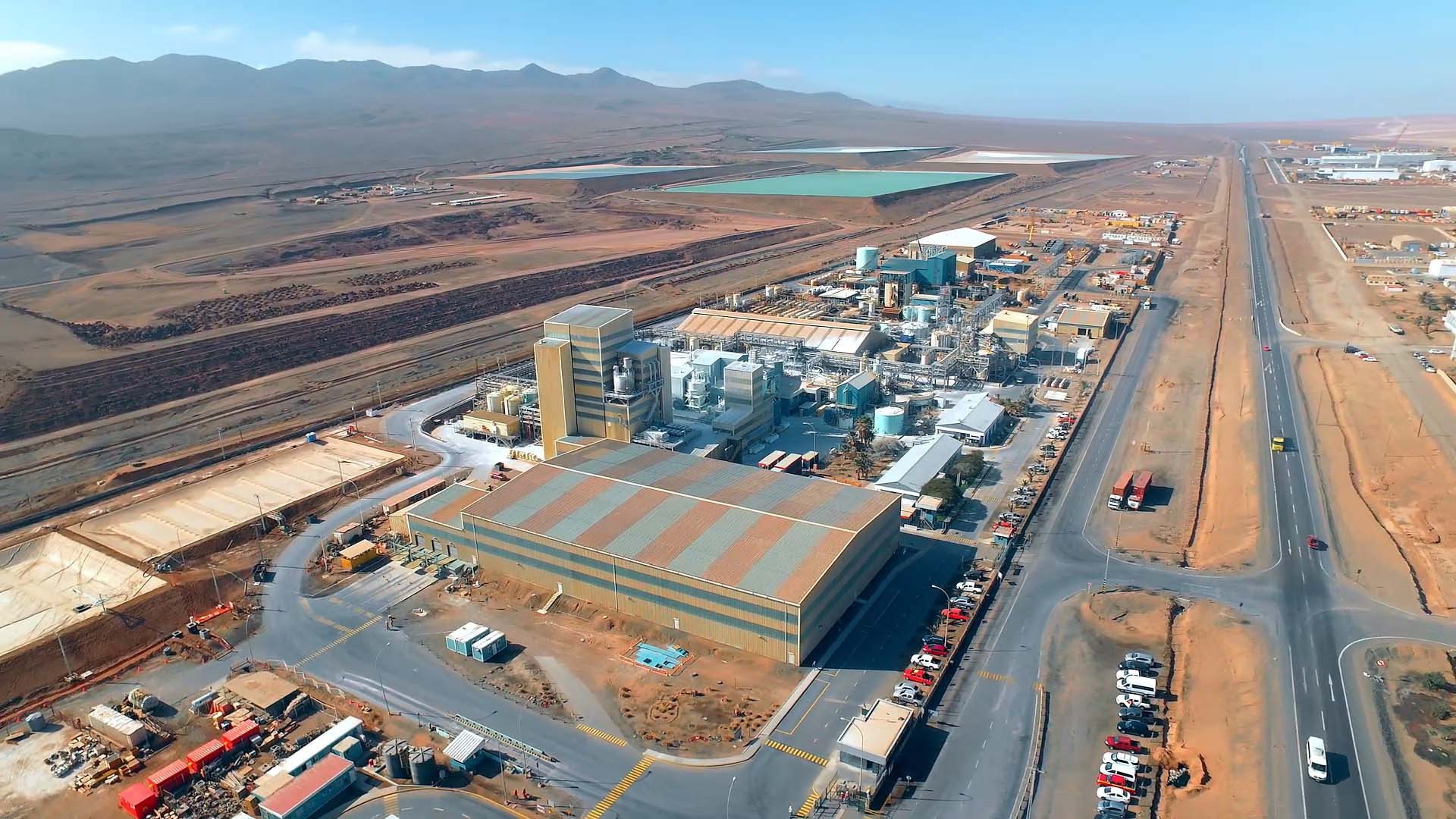
Our History in ChilE
We live in an era of energy transition. Chile, especially the Antofagasta Region, has all the conditions to be a significant contributor to the electrification and digitization of the world. Albemarle is one of the largest lithium producers and we are at the forefront of lithium development. For over 40 years, we’ve worked with The Production Development Corporation (CORFO - a Chilean governmental organization) to sustainably produce lithium for the benefit of both Albemarle and the Chilean people.
Historical development In Chile
-
Foote Mineral began production at Silver Peak, Nevada.
1960 -
Foote Mineral signed a basic contract for Lithium extraction with CORFO, Chilean Development Agency.
1975 -
Sociedad Chilena de Litio (SCL) established. Now Albemarle Corporation.
1980 -
First production of concentrated brines at the Salar Plant. La Negra I Lithium carbonate production begins.1984 -
2010-2016 Hydrogeological Model developed for the Salar de Atacama.
2010 -
Albemarle acquires Rockwood Lithium.
2015 -
Unanimous approval of the new environmental permit (RCA), to increase brine pumping from 142 to 442 liters per second. We entered into a historical agreement with the Atacameño People Council to improve educational opportunities for the indigenous community.
2016 -
Developed a Hydrogeological Model for Silver Peak, NV.
2018 -
La Negra III/IV carbonate production anticipated to begin in H2.
2021 -
La Negra III Plant is inaugurated.
2022




LITHIUM AS PART OF OUR DAILY LIVES
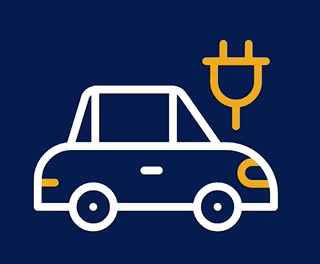
Batteries for Electric Vehicles / HEV / PHEV Batteries
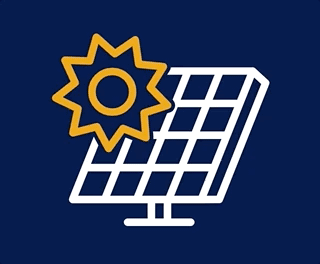
Energy efficiency
Power Grid and Solar Panels
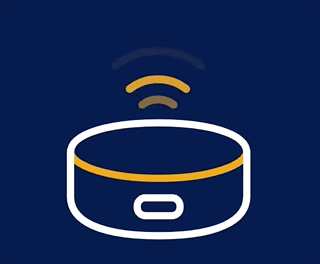
Electronic
Phones / Pads PCs Power tools

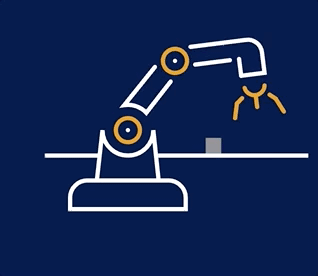

Health Vitamins / Zeolites / X-ray Imaging


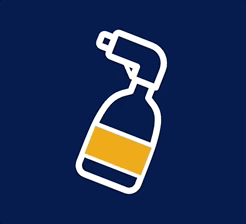
PROTECTING THE PLANeT FOR FUTURE GENERATIONS
The Intergovernmental Panel on Climate Change (IPCC) report assessed how global warming might change the world in the coming decades, after reviewing more than 14,000 scientific papers. If current levels of greenhouse gas emission continue, the planet could exceed a key global temperature limit in just over a decade.
Transportation is responsible for more than 30% of CO2 emissions in the EU, of which 72% comes from vehicles. In Chile, the transport sector is responsible for more than 22% of total greenhouse gas emissions.
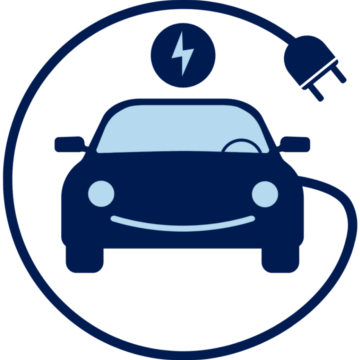
Europe, China, and the United States are increasing the adoption of electric vehicles to tackle climate change. This global outlook challenges us to look for more efficient systems that allow us to increase sustainable lithium production with the same amount of permitted brine.
An average-sized private vehicle that travels 15,000 kilometers per year can emit between 2 to 3 tons of CO2 in that period, which is equivalent to at least half of the annual CO2 per capita of Chileans. In the case of public transportation, an electric bus can avoid the emission of about 54 tons of CO2 per year.
Lithium is a critical element in the ongoing electrification and digitization transformation because of its unique energy storage properties:
EVs do not emit pollutants, such as nitrogen oxides or particulate matter, through the tailpipe.
Brakes and tire wear still emit particulates, but generally less than diesel or gasoline vehicles.
They do not emit noise.
In the Salar De Atacama, how we extract lithium is as important as how much we produce.
As demand for lithium grows, we are aware that our own growth must be sustainable. Albemarle is committed to the safe, responsible, and sustainable management of our products throughout their life cycles and for their intended uses. We are working with the communities, authorities, and stakeholders to build a long-term relationship based on trust.
What to know about brine

Brine Permit
Two companies extract brine from the Salar de Atacama to produce lithium. We use solar power to naturally concentrate the brine.

Water Permit
The lithium production process does not require fresh water. We only use it to wash equipment and potassium.
Albemarle has only 0.5% of the total fresh Water Rights.
How Brine is different from freshwater?
Brine is ten times saltier than seawater, and cannot be used for human consumption or agriculture. the brine is extracted from beneath the salt flats, where it has accumulated for millions of years
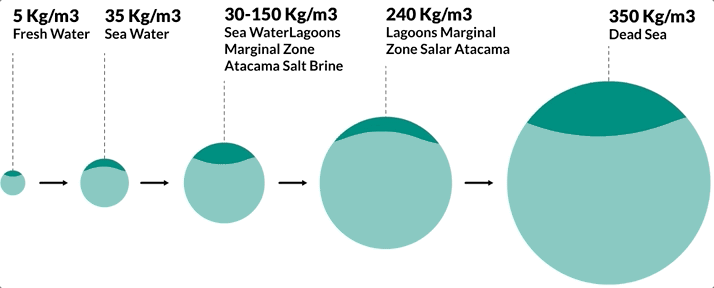
FRESHWATER IS NOT USED IN THE EXTRACTION PROCESS.
We have 150 brine wells in the Salar basin, which are monitored in real-time and in conjunction
with the indigenous communities of the Salar de Atacama and reported to environmental authorities.
The water evaporated from brine (3,840 liters) to produce a 64kwh battery is equivalent to the water to produce:

Half pair of jeans

250g or a half-pound of beef

30 cups of coffee
Albemarle obtained a new environmental permit (2016) after developing a new hydrogeological model of the Salar De Atacama to support the sustainability and balance of the ecosystem.
This study was conducted for eight years
Cost more than $20 million USD
With the new model, Albemarle established the highest standard for the sustainable extraction of brine in the Salar de Atacama.
This model is the most up-to-date tool available and serves as the basis for authorities, communities, and other companies with operations in the area.
In September 2021, we initiated an independent third-party assessment using the Initiative for Responsible Mining Assurance (IRMA) standards at our Salar de Atacama Plant. RM Certification and Verification Services (ERM CVS), an IRMA-approved certification body, is conducting the audit at Albemarle. We are the first lithium producer in the world to initiate such an assessment.
The IRMA standard is considered worldwide as the most comprehensive and rigorous certification standard to ensure responsible mining.
Conditions for operating in Chile
-
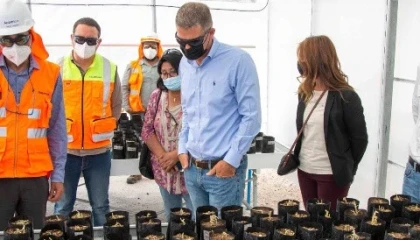 Our contract with the government of Chile, through CORFO, allows us to operate in Chile until 2043. It sets a series of requirements with which we are proud to comply.
Our contract with the government of Chile, through CORFO, allows us to operate in Chile until 2043. It sets a series of requirements with which we are proud to comply. -
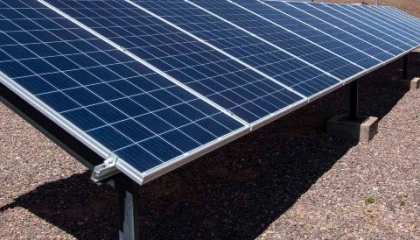 By 2043, Albemarle will have invested $300 million in development projects. It is considered the largest private sector contribution.
By 2043, Albemarle will have invested $300 million in development projects. It is considered the largest private sector contribution. -
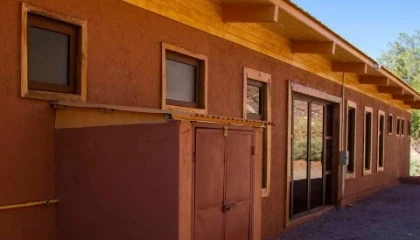 We voluntary share 3.5% of the profits from our sales with the indigenous groups living in the Salar de Atacama.
We voluntary share 3.5% of the profits from our sales with the indigenous groups living in the Salar de Atacama. -
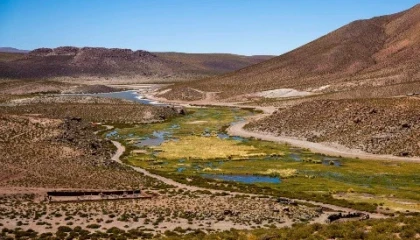 We contribute to the financing of a Circular Economy Center and an Electromobility Consortium in Chile.
We contribute to the financing of a Circular Economy Center and an Electromobility Consortium in Chile.


Sustainable Lithium for the World
Participatory Environmental Monitoring
Albemarle has a close relationship with the Council of Atacameño Peoples (CPA).
In 2016, Albemarle and the CPA signed an unprecedented and historic "Cooperation, Sustainability and Mutual Benefit" agreement, in force to this day and which marked a new paradigm of understanding between a mining company and an indigenous community.
Atacameño People´s Council (CPA), represents 18 indigenous communities within the Salar basin.
Peine is the nearest indigenous community.
Municipality San Pedro of Atacama.
Municipality of Antofagasta.
Jointly monitor the brine and water levels with indigenous communities.
Request for permits to communities to carry out environmental monitoring.
Community representatives accompany Albemarle´s environmental monitoring.
Delivery of monthly reports to the communities.
Delivery to the Council of Atacameño Peoples of all environmental information generated by the company.
Environmental training for representatives of indigenous communities (15), 2017-2020 (100 % compliance) Inform the CPA about Albemarle´s monthly calendar of environmental monitoring.
Based on standards from The United Nations Declaration on the Rights of Indigenous Peoples and ILO Convention 169 on Indigenous and Tribal Peoples in Independent Countries.
Establishes dialogue process and permanent monthly working table with representatives of the CPA.
Shares 3.5% of sales with indigenous communities to support their projects.
Cooperation in the promotion of territorial sustainability, care for the environment, and protection of ecosystems.
Construction of photovoltaic plants in the communities of Camar and Machuca, reducing reliance on diesel generators.
Installation of solar panels in 100% homes in Catarpe.
Installation of drinking water network in the Communities of Río Grande, Machuca, Camar and others.
5 communities have built community centers.
Repopulation Program in the community of Guatín by constructing of 40 homes – allowing community members to return to ancestral village.
Installation of public lighting in the community of Machuca.
Financial support program for the elderly in the communities of Solcor and Catarpe.
More than 400 scholarships give to students.
-
6,027 free medical care exams (2018-2020).
4,052 free health procedures (2018-2020).
Purchase of a vehicle to transfer patients.
2,946 students benefited from indigenous education programs – language, culture and traditions (2017-2020).
257 students participated in one year college preparatory program to successfully complete university entrance exam (2017-2020).
Constructed drinking water and wastewater treatment plants.
Improvement of senior citizen community center.
Repaired church and construction improvements in waste collection center
Construction and road improvement.
Tourism Plan for Tulan Complex and Peine
Purchased van for the environmental unit
Study to establish territorial boundaries (water and land)
120 scholarships (2012-2020)
Peine and Tilomonte agricultural livestock projects
CPA dedicated 90% of these resources in 2020 to community needs due to COVID
Finance Environment Unit
Funding for dormitory for students in K-12 to study in Calama budget
Purchased land for CPA offices in San Pedro
Purchased van for the environmental unit





